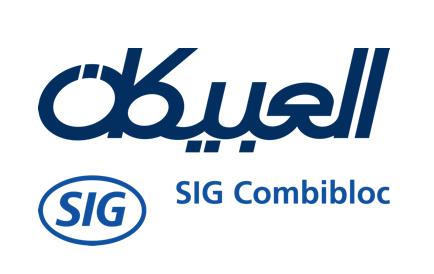
A Call for Reformulation and Product Innovation Trends and Opportunities
Driven by urbanisation and increasingly changing lifestyles, the food industry is evolving rapidly toward a healthier and more sustainable food future. Some of the trends accompanying this shift are disrupting the traditional food industry.
Consumers are more aware of their personal health and wellbeing and becoming more educated on the benefits of healthier food and lifestyle choices. Companies are changing products and re-creating popular items with no sugar alternatives. These drivers are impacting growing trends in the industry that include demand for transparency, focus on health and wellness and preference of low-sugar and sugar-free products. We, at SIG Combibloc, not only expect these trends to continue but also accelerate.
One of the most striking international transformation in recent years is how consumer attitudes have changed towards sugar. In the food and beverage industry, sugar taxes have been implemented across several major markets, soft drink manufacturers have been forced to reformulate, raise prices or use alternatives. Reducing sugar content have become top priority for food innovators and manufacturers.
Today, the trend of consumers favouring low-sugar and sugar-free products has broadened and extended to other products. 42% of global consumers proactively seek products that can improve their health. 54% of global consumers would buy less unhealthy food if there is a tax or a price increase on those foods and drinks.
Globally, the number of products with low-sugar claims has been growing. Specifically, the APAC region witnessed a 13 percent increase in new products launches containing low-sugar claims between 2012 and 2017. Focusing on the Middle East, the contribution of sugar to the total average daily food energy supply is relatively high in most countries of the region ranging from 9% to 15%. Sugar consumption in almost half the countries of the Region exceeds 80 g a person a day. The region has the fastest growth in sugar consumption globally and this dietary transition has markedly reduced the quality of the diet of the population.
Governments and companies are implementing measures to minimise sugar intake. Saudi Arabia’s tax authority is imposing 50% levy on sugary drinks. The Federal Tax Authority (FTA) clarified the qualification of a sweetened drink that will incur an excise tax. As a result, we witness a price increase for still drinks and nectar by 50%.
Given the challenges sugar continues to face, manufacturers may benefit most by reformulating their drinks based on consumers' needs. The effectiveness of sugar taxes may be subject to question but the prospect of them, in combination with a general consumer shift towards greater health consciousness, is likely to continue to push consumers towards lower sugar and sugar alternatives.
How to deal with upcoming sugar regulations in Saudi Arabia and UAE?
When sugar is reduced, other ingredients must be added to retain taste and texture. Here are the most common sugar alternatives:
Natural sweeteners
As consumer preferences shift to clean label solutions, sweet ingredients such as honey and agave hold strong appeal. However, while using natural sugars may move traditional cane or beet sugar down in your list of ingredients, the amount of sugar listed in the product nutrition facts may remain unchanged. Natural sweeteners can also add bitterness and metallic off-notes to a product.
Artificial sweeteners
Ingredients such as aspartame, saccharin and sucralose are sweeter than sugar and also lower in calories. Though once popular as a sugar replacement, many consumers are concerned about the health effects of artificial sweeteners, despite a lack of evidence.
Overcoming regulatory challenges
The demand for reduced sugar is almost universal, but labeling regulations vary by country. For instance, the definition of “natural sugars” differs by location, and so do criteria for adding callouts such as “low sugar”, “reduced sugar” and “no added sugars”. When customers partner with SIG on sugar reduction, the SIG team and partners can help customers understand and abide by labeling criteria specific to the specific points of sale.
We, at SIG Combibloc, are working with our partners to support them in furthering this mission with packaging proven to be among the most environmentally-friendly and innovative as part of our value proposition. Together, we collaborate to create solutions from formulation through product innovation to meet the demands of today’s customers.

























